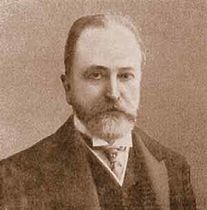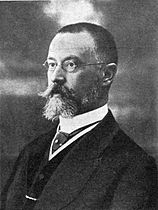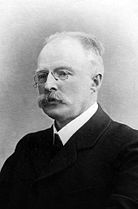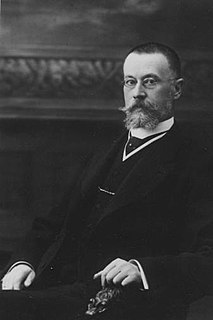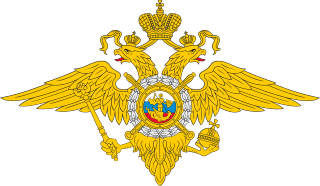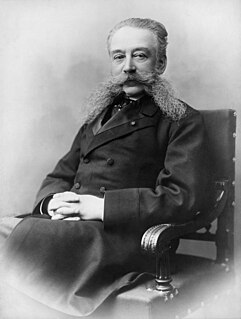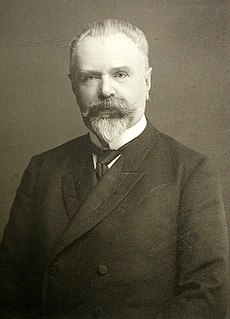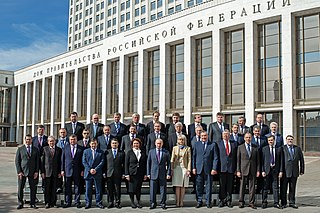| Cabinet of Vladimir Kokovtsov | |
|---|---|
4th cabinet of Russia | |
 | |
| Date formed | September 22, 1911 |
| Date dissolved | February 12, 1914 |
| People and organisations | |
| Head of state | Nicholas II |
| Head of government | Vladimir Kokovtsov |
| No. of ministers | 12 |
| History | |
| Predecessor | Stolypin |
| Successor | Goremykin II |
Cabinet of Vladimir Kokovtsov – composition of the Council of Ministers of the Russian Empire, under the leadership of Vladimir Kokovtsov, worked from September 22, 1911 to February 12, 1914. [1] [2]

The Russian Empire, also known as Imperial Russia or simply Russia, was an empire that existed across Eurasia and North America from 1721, following the end of the Great Northern War, until the Republic was proclaimed by the Provisional Government that took power after the February Revolution of 1917.

Count Vladimir Nikolayevich Kokovtsov was a Russian politician who served as the Prime Minister of Russia from 1911 to 1914, during the reign of Emperor Nicholas II.
Kokovtsov's Cabinet was formed immediately after the murder of Pyotr Stolypin, who served as Prime Minister. Emperor Nicholas II decided to appoint a new Prime Minister Vladimir Kokovtsov, who was Finance Minister in the Cabinet of Stolypin and retained this post in his Cabinet. [3]
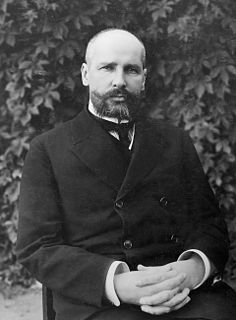
Pyotr Arkadyevich Stolypin was the 3rd Prime Minister of Russia, and Minister of Internal Affairs of the Russian Empire from 1906 to 1911. His tenure was marked by efforts to counter revolutionary groups and by the implementation of noteworthy agrarian reforms. Stolypin was a monarchist and hoped to strengthen the throne. He is considered one of the last major statesmen of Imperial Russia with clearly defined public policies and with the determination to undertake major reforms.

The Chairman of the Government of the Russian Federation, colloquially referred to as the Prime Minister is the head of the Russian government and the second most powerful figure of the Russian Federation. The official residence of the prime minister is Gorki-9 in Odintsovsky District, Moscow Oblast, but his working residence is in Moscow. Under Article 24 of the Federal Constitutional Law 'On the Government of the Russian Federation', the prime minister "heads the Government of the Russian Federation". The Russian Prime Minister is considered the second highest position in the government, after the President.

Cabinet of Pyotr Stolypin – composition of the Council of Ministers of the Russian Empire, under the leadership of Pyotr Stolypin, worked from July 21, 1906 to September 18, 1911.
